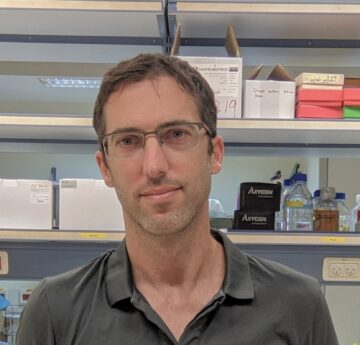We are a multidisciplinary group studying the self-organization and modes of functions of dynamic clusters of biomolecules and their role in cellular health and disease. We develop and utilize controllable intracellular tools for probing and manipulating the collective activities of biomolecules, leveraging fundamental insights into novel therapeutic strategies and cutting-edge synthetic biology applications.
Overview
Our research aims to enhance our understanding of the collective properties and function of dense biomolecular phases and their role in cellular health and disease. We are particularly intrigued by a group of conformationally unstable proteins, known as intrinsically disordered proteins (IDPs), that possess a remarkable ability to phase-separate into intracellular liquid bodies. These physicochemical entities are programmed to generate intracellular order and to locally orchestrate complicated, multi-component cellular tasks, ranging from gene regulation and genome organization to cellular signaling, stress response, and assembly of ribonucleoprotein complexes. However, the driving forces underlying the biogenesis of these phase-separated structures and the collective modes of function of their building blocks are poorly understood. Moreover, the beneficial ability of disordered proteins to phase separate also harbors a grave risk and is associated with enhanced aggregation propensity implicated in the pathogenesis of devastating diseases, including various neurodegenerative disorders and cancers. Studying these dynamic structures and elucidating the link between their physicochemical nature, function, and dysfunction pose a major challenge for conventional molecular biology and biophysical technologies.
Research approach
Our research both drives and is driven by the development of innovative cellular technologies that combine cutting-edge microscopy, spectroscopy, bioengineering, molecular biology, genome editing, cellular biophysics, and optogenetics. These technologies aim to provide quantitative and controllable means to probe and manipulate the collective behavior of proteins and nucleic acids that underlie fundamental cellular and disease mechanisms. We envision that these efforts hold great promise for answering long-standing questions in cell biology and understanding disease onset and progression, opening new avenues for therapeutics, biomedicine, genome engineering, and biotechnological applications.
For more information: http://danbracha.weebly.com





